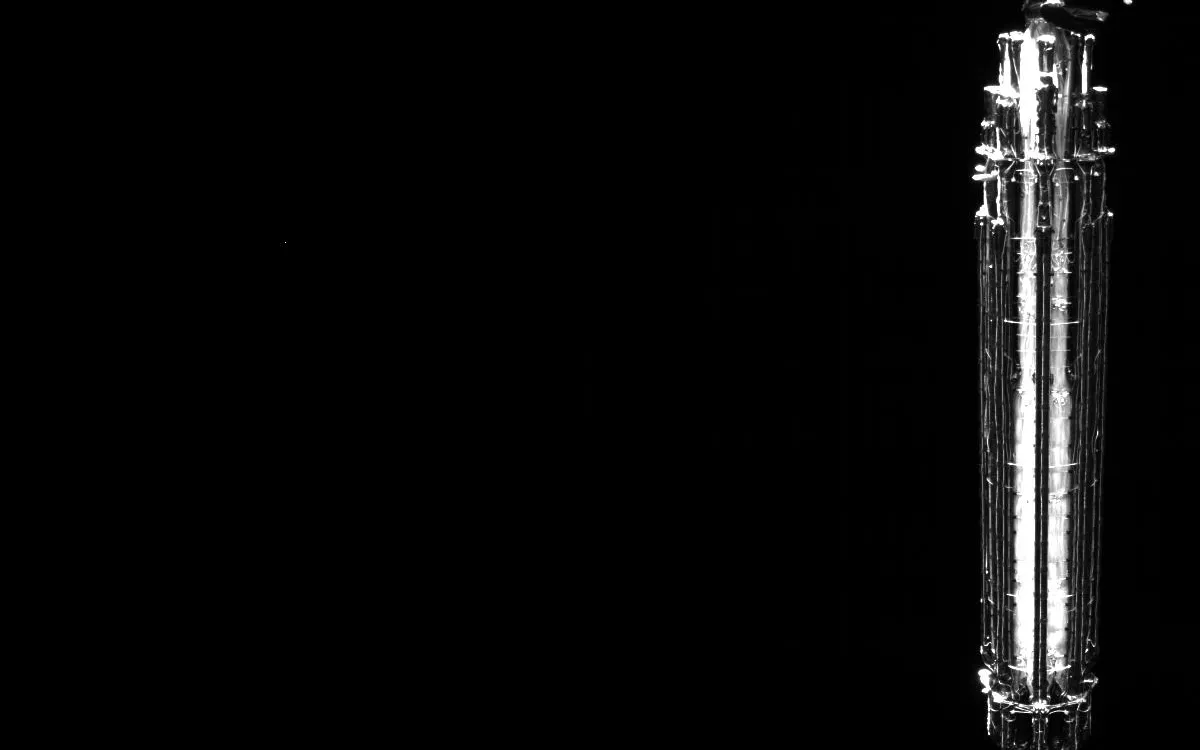
Following the successful liftoff and the acquisition of its first signal, the Biomass satellite has completed a crucial phase in its launch and early operations. The deployment of its mesh antenna reflector signifies the final step before the satellite can begin its mission effectively. This milestone is part of a carefully orchestrated process involving multiple stages to ensure the satellite operates at optimal performance.
Before the 12-metre-diameter reflector could be unfolded, the satellite's 7.5-metre-long supporting boom needed to be deployed first. Stefan Kiryenko from the European Space Agency (ESA), who oversaw the development of the antenna reflector, explained the complexity of this operation. “The boom deployment was carried out in three carefully planned stages, each lasting about five minutes,” he noted. “However, only one stage was executed per day, strategically timed to coincide with specific satellite passes that provided optimal coverage from ground stations.”
Once the boom was fully extended, the team proceeded to deploy the mesh antenna reflector, which unfolds like an umbrella above the satellite. This precise operation is crucial for the satellite's subsequent functions, making it an essential milestone for the Biomass mission.
Photographs captured during the operation come from a camera installed on the Biomass satellite, offering a rare glimpse into the action occurring in space. The camera was provided by the Swiss company MCSE, showcasing the intricate steps involved in the deployment process.
ESA’s Biomass Project Manager, Michael Fehringer, detailed the challenges faced during the deployment. “First, we had to disable the satellite’s attitude and orbit control system so it could ‘float’ freely, avoiding any unwanted torque during the antenna’s deployment,” he explained. The team then fired two pyrotechnic devices to release the belt securing the folded antenna.
“We had just a 24-minute window of visibility during the antenna deployment, during which ground stations in Inuvik (Canada), Svalbard (Norway), and Kiruna (Sweden) handed over coverage seamlessly,” Fehringer added. Due to the complexity of the procedure, the team had to wait for another pass to confirm that the antenna had opened correctly. Fortunately, it was a successful deployment, marking a significant achievement for the Biomass mission.
Fehringer expressed gratitude to the various teams involved in this operation. “I’d like to thank L3H, the supplier of the antenna reflector, Airbus, the prime contractor for Biomass, and the ESA teams who have all worked to make this wonderful moment and key milestone happen.” This successful deployment not only represents a technical achievement but also a collaborative effort that underscores the importance of teamwork in space exploration.
The animation below, which serves as an artist's impression, illustrates the deployment of the boom and the antenna, encapsulating this momentous event in the Biomass mission.